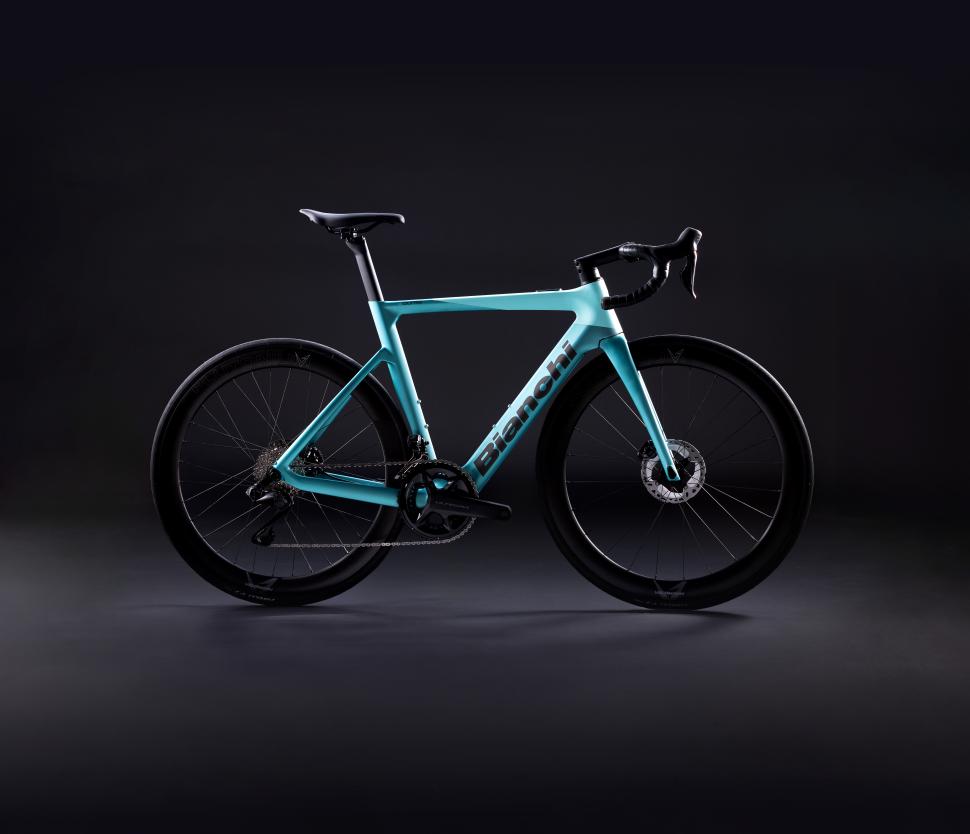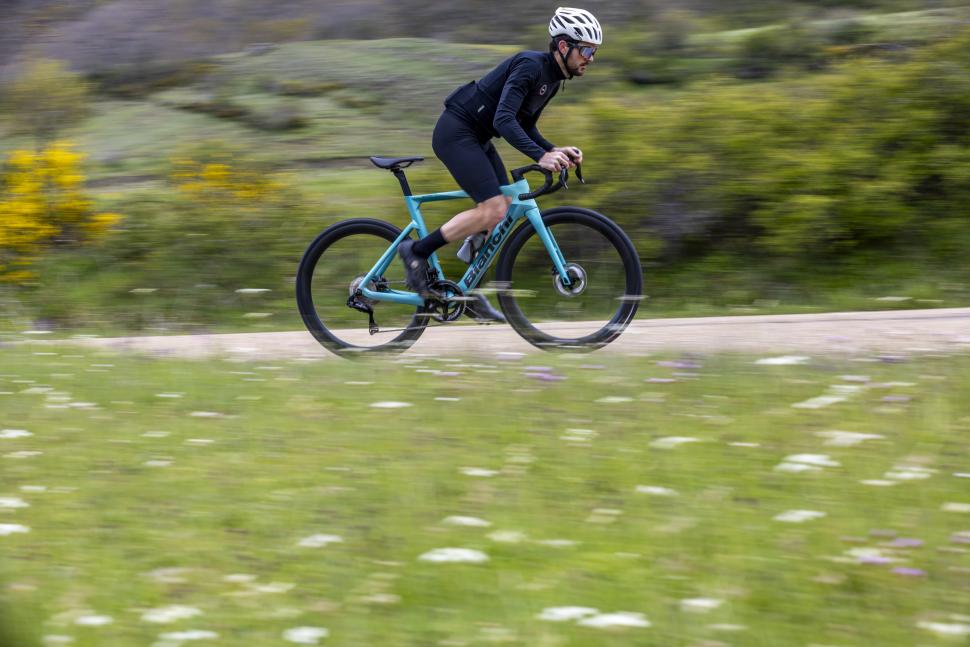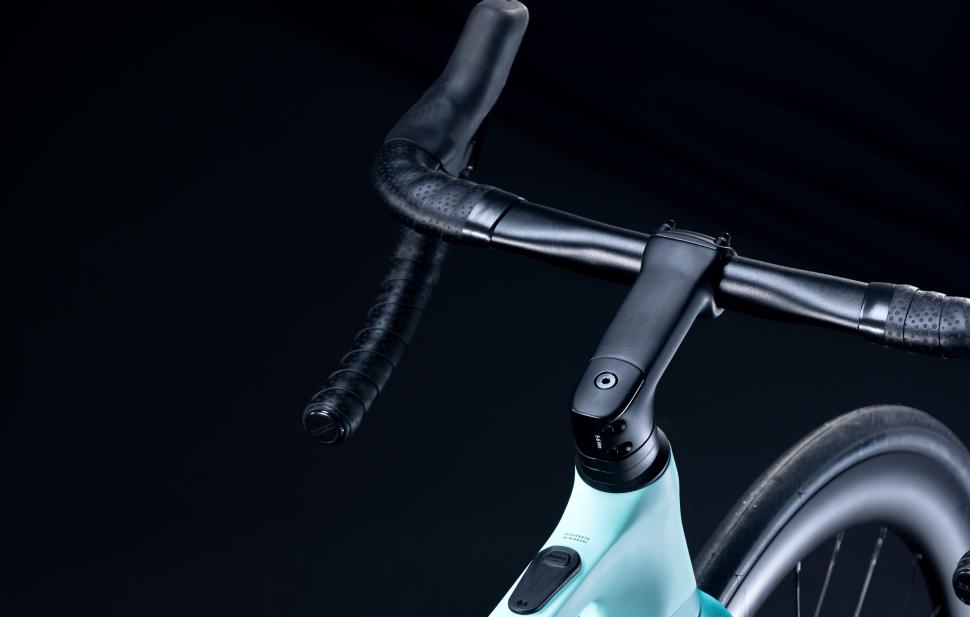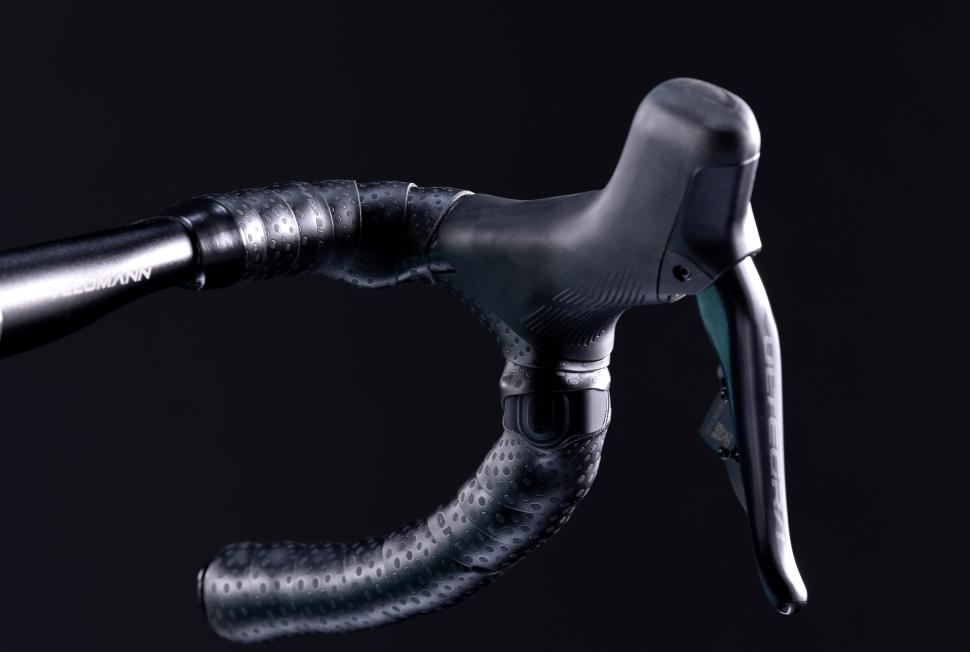- News
- Reviews
- Bikes
- Components
- Bar tape & grips
- Bottom brackets
- Brake & gear cables
- Brake & STI levers
- Brake pads & spares
- Brakes
- Cassettes & freewheels
- Chains
- Chainsets & chainrings
- Derailleurs - front
- Derailleurs - rear
- Forks
- Gear levers & shifters
- Groupsets
- Handlebars & extensions
- Headsets
- Hubs
- Inner tubes
- Pedals
- Quick releases & skewers
- Saddles
- Seatposts
- Stems
- Wheels
- Tyres
- Tubeless valves
- Accessories
- Accessories - misc
- Computer mounts
- Bags
- Bar ends
- Bike bags & cases
- Bottle cages
- Bottles
- Cameras
- Car racks
- Child seats
- Computers
- Glasses
- GPS units
- Helmets
- Lights - front
- Lights - rear
- Lights - sets
- Locks
- Mirrors
- Mudguards
- Racks
- Pumps & CO2 inflators
- Puncture kits
- Reflectives
- Smart watches
- Stands and racks
- Trailers
- Clothing
- Health, fitness and nutrition
- Tools and workshop
- Miscellaneous
- Buyers Guides
- Features
- Forum
- Recommends
- Podcast
TECH NEWS
 42024 Bianchi e-Oltre e-bike
42024 Bianchi e-Oltre e-bikeBianchi launches e-Oltre: an 11kg ebike that feels like "a true road bike" (says Bianchi)
Bianchi has unveiled its newest e-road bike called the e-Oltre. As you'd expect it's available in the classic Bianchi celeste colour, and it's designed to look and feel like a non-electric bike. The Italian brand says the e-Oltre is going to "offer an ever-wider audience the same fun and sensations of a true road bike".
Bianchi is hardly a newcomer to the e-road bike market, as it first brought out the Impulso e-road in 2018, (which we also reviewed) and has kept expanding its e-bike portfolio to include everything from premium road bikes to commuters and e-MTBs.
The e-Oltre falls into the former category – it's a very high-spec e-bike that barely looks different from its acoustic Oltre sibling. The top-spec model with Shimano Dura-Ace Di2 is claimed to tip the scales at a mere 11kg, which is similar to that of the Scott Solace eRide and Trek Domane+ SLR 9 which is said to weigh 11.75kg.
All of the e-Oltre models are built with a carbon fibre frame that stealthily houses a 250W Mahle iX2 battery, which provides power to the German brand's newest X30 rear hub motor.
The motor, which Mahle wants to become the industry standard, includes a torque sensor that reacts instantly to any effort and promises to deliver a responsive and natural ride feel. In terms of that power output, the X30's 45Nm sits between the brand's previous X35 (40Nm) and the more powerful X20 (55Nm) motor. Rather than power, Mahle has said it's focused on efficiency with this newest motor.
The maximum range for the e-Oltre stands at 90km with the 250W iX2 battery, but this can be extended by 55km with an additional range extender. To charge things up, Mahle's fast-charging technology claims the battery to reach 75 per cent capacity in less than two hours.
There are three levels of electric assistance to choose from, and those can be controlled via an integrated top tube controller or remote shifters on the handlebar.
Bianchi e-Oltre pricing
Bianchi offers the e-Oltre in three different configurations. All of the models are built with the same full carbon fibre frames and forks and Velomann Plutonium 50mm carbon fibre wheels, but with slightly differing finishing kits and of course, groupsets.
The Shimano Dura-Ace Di2 model with Reparto Corse integrated handlebar is priced at £8,699. The Shimano Ultegra Di2 version, slightly heavier at 11.5 kg, is available for £5,599, and the Shimano 105 model, weighing 12 kg, is the most affordable option at £4,299. Both the Ultegra Di2 and 105 both get a Velomann Aero Compact handlebar and Velomann Gnd Full-fit saddles instead of the top model's Velomann Mitora Lite.
You can find out even more about the e-Oltre at Bianchi's website www.bianchi.com.
Latest Comments
- David9694 19 min 58 sec ago
Stouport residents bemoan huge traffic queues through town...
- imajez 6 hours 25 min ago
- looks like someone has fallen for the steel is real markerting BS. I only care how a bike rides, not what it is made of. I had a lovely steel...
- lonpfrb 7 hours 45 min ago
That argument is ignorance of the widespread height and width restrictions to be found on the many minor roads that were originally created for...
- rookybiker 11 hours 13 min ago
The trailer seems to connect to both ends of the rear axle. Can it do tight corners without dragging the tyre sideways?
- froze 11 hours 17 min ago
Motorists have always been unkind to cyclists, but distracted driving is adding to the problem....
- Destroyer666 12 hours 10 min ago
Have you owned Bont shoes? In my experience even the widest Lake shoes have had a bizarre form of narrowing way too much in the toe area. But the...
- froze 12 hours 38 min ago
Not sure if this is possible, but this news letter goes out all over the world, and some places like Decathlon does not send stuff to America, in...
- Hirsute 13 hours 22 min ago
I'm confused as to why you'd need bib shorts indoors.
- Oldfatgit 13 hours 51 min ago
I'm sure you were being sarcastic... however ... Lewis Hamilton lives in Monaco. Yet another car driver that doesn't pay any tax



Add new comment
11 comments
All of the e-Oltre models are built with a carbon fibre frame that stealthily houses a 250W Mahle iX2 battery.
Battery capacity is measured in W·h, not W. A battery does have a power rating in watts, but it's not mentioned and will be much more than 250 W. It has a 250 W·h battery, meaning it can nominally put out 250 W for one hour, or 125 W for two hours, but of course it's a bit more complicated than that.
In terms of that power output, the X30's 45Nm sits between the brand's previous X35 (40Nm) and the more powerful X20 (55Nm) motor.
That's torque output, not power output. I can easily put out over 100 N·m of torque, standing on the pedals from a dead stop, but not 250 W for very long.
Bianchi need to fix their website. Its painfully slow.
Hub motor. Focussed on efficiency. Oh dear! I was under the impression that central motors were more efficient over a wide variety of speeds as the motor itself is always operating close to its optimum revs, as long as you maintain a reasonable cadence, while a hub motor might be slightly more efficient at 25kph (about 80-83%), but when climbing a steep hill at half that speed (which is where you really need assistance) is less than 50% efficient i.e. half the power is lost in heating the motor. My experience with hub motors backs this up. Hope someone with real knowlege can clear this up.
Sidestepping the engineering question, I suspect what it means is that Mahle, having already decided to focus on a rear hub product (presumably because Bosch and others have got the crank motor market wrapped up, or because it thinks there are other benefits of a hub motor for this application) has focused on efficiency rather than power.
You may well be right, but for me it is genuine curiosidad about engineering and efficiency.
I suspect it rather depends on whether you tried a hub motor from a reputable brand or an eBay special....
Given the design range is only between 8-15mph it doesnt seem to be beyond the wit of man to make a hub motor effecient over that range....
Oddly enough, my hub motor is from a reputable brand, but I don't think it depends on that. After a quick Google search I think part of the key is the controller rather than just the motor ítself but, while I would like, like you, to hope the efficiency would remain constant over a speed range from approx 11 to 27kph, what is suggested is that it isn't. Hence the numbers I. If anyone with genuine knowledge and expertise in the field could clear it up, I would be delighted.
Slight point of order - the article mentions Shimano 105 Di2 - but the actual lowest spec is mechanical 105.
Lovely looking e-bike.
I don't want an e-bike, I don't NEED an e-bike...I dont want an e-bike, I don't NEED and e-bike... I don't want an e-bike, I don't NEED an e-bike..........sorry, just trying to convince myself.
that could be nice a bike even without all the electrickery.
Wouldn't that just be the Bianchi Oltre?
oh, the oltre 'race', perhaps. the tube profiles seem beefier on this one. though it could be paintwork effect.